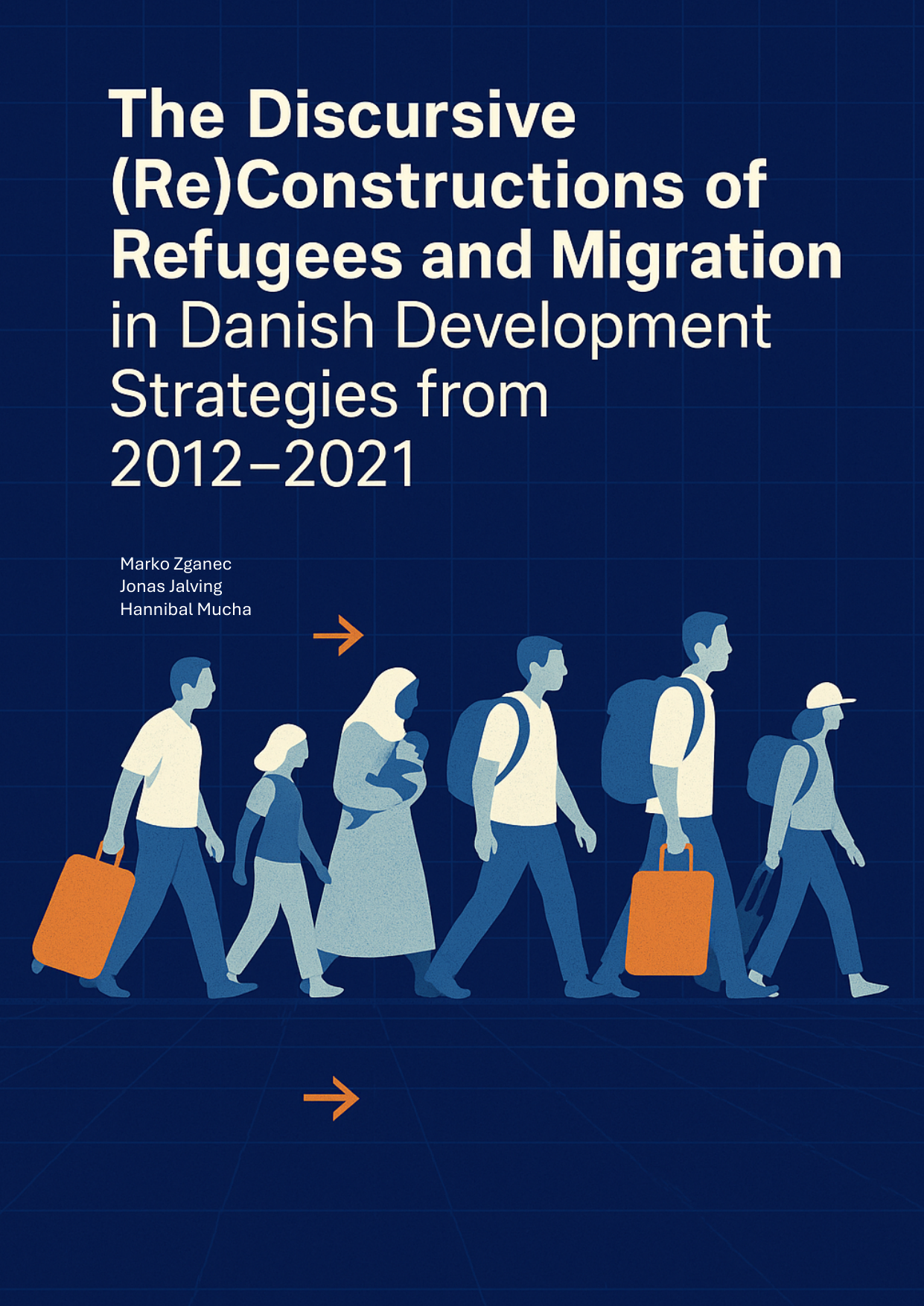
The Discursive (Re)Constructions of Refugees and Migration: In Danish Development Strategies from 2012 to 2021
Authors
Term
4. semester
Education
Publication year
2025
Submitted on
2025-05-27
Pages
114
Abstract
Abstract This thesis investigates how successive Danish development strategies – The Right to a Better Life (2012), The World 2030 (2017), and The World We Share (2021) – discursively (re)construct “refugees” and “migration,” and with what political effects. Combining Carol Bacchi’s” What’s the Problem Represented to Be?” framework with Norman Fairclough’s textual-level Critical Discourse Analysis, the study interrogates each white paper’s problem framings, underlying assumptions and silences, then compares the three to map change over time. The corpus was purposively selected because the strategies bracket a decade in which European mobility poli-tics shifted from episodic crisis to everyday agenda, yet the discursive foundations of Den-mark’s own aid texts remain under-examined. Findings show a clear trajectory from marginalisation to securitisation. The 2012 strategy treats refugee flows as a side-effect of fragility, locating solutions in generic poverty reduction while keeping asylum off the page. By 2017, migration is named a core “threat,” and humanitar-ian rhetoric is woven into a security lexicon that justifies using aid to “counter” irregular flows. The 2021 text elevates “displacement and irregular migration” to a flagship challenge alongside climate change, openly making migration control a benchmark for development success and conditioning cooperation on partner states’ willingness to contain mobility. Across the dec-ade, refugees are increasingly positioned as passive beneficiaries to be protected “in their re-gion of origin,” while Denmark is cast as benevolent investor and gatekeeper. This language naturalises an externalisation of protection and legitimises aid conditionalities that reward or penalise states for readmission and border policing. By foregrounding discourse as a site of power, the thesis demonstrates how development texts do ideological work: they transform humanitarian motifs into common-sense arguments for containment, thereby narrowing the imaginable policy space. Beyond Denmark, the study contributes to scholarship on the migration-development nexus by evidencing how small-state strategy documents help normalise a broader European turn toward “humanitarian bor-der control.”
Abstract This thesis investigates how successive Danish development strategies – The Right to a Better Life (2012), The World 2030 (2017), and The World We Share (2021) – discursively (re)construct “refugees” and “migration,” and with what political effects. Combining Carol Bacchi’s” What’s the Problem Represented to Be?” framework with Norman Fairclough’s textual-level Critical Discourse Analysis, the study interrogates each white paper’s problem framings, underlying assumptions and silences, then compares the three to map change over time. The corpus was purposively selected because the strategies bracket a decade in which European mobility poli-tics shifted from episodic crisis to everyday agenda, yet the discursive foundations of Den-mark’s own aid texts remain under-examined. Findings show a clear trajectory from marginalisation to securitisation. The 2012 strategy treats refugee flows as a side-effect of fragility, locating solutions in generic poverty reduction while keeping asylum off the page. By 2017, migration is named a core “threat,” and humanitar-ian rhetoric is woven into a security lexicon that justifies using aid to “counter” irregular flows. The 2021 text elevates “displacement and irregular migration” to a flagship challenge alongside climate change, openly making migration control a benchmark for development success and conditioning cooperation on partner states’ willingness to contain mobility. Across the dec-ade, refugees are increasingly positioned as passive beneficiaries to be protected “in their re-gion of origin,” while Denmark is cast as benevolent investor and gatekeeper. This language naturalises an externalisation of protection and legitimises aid conditionalities that reward or penalise states for readmission and border policing. By foregrounding discourse as a site of power, the thesis demonstrates how development texts do ideological work: they transform humanitarian motifs into common-sense arguments for containment, thereby narrowing the imaginable policy space. Beyond Denmark, the study contributes to scholarship on the migration-development nexus by evidencing how small-state strategy documents help normalise a broader European turn toward “humanitarian bor-der control.”
Keywords
Refugees ; Migrations ; Development ; Discourse ; Strategies
Documents
